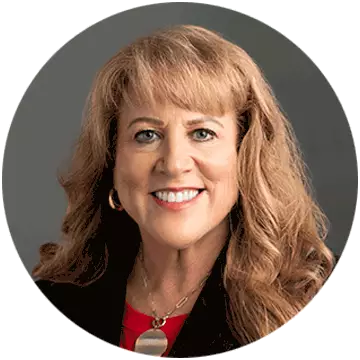Jobs with an early childhood education degree

Reviewed by Pamela M. Roggeman, EdD, Dean, College of Education

If you have or are considering pursuing a degree in early childhood education, you're probably interested in working with children early on in their education to help give them the best possible chance to succeed in school and beyond. Looking for another perk? Most teachers and other educators get the summer months off from work and may have the ability to take off mornings and afternoons if they teach very young kids. Remote roles are also possible.
What is early childhood education?
Early childhood education refers to teaching children up to 8-years-old helping them learn basic math, reading and forming friendships. You could play an influential role in child development for a dozen kids at a time or potentially more.
Teaching in early childhood can also be very rewarding beyond the skills you impart, as this child development phase is crucial for early learning and social skills. Early childhood education is a career that needs candidates who want to make a positive impact on children’s lives for years to come.
What can you do with an early childhood education degree?
A degree may be a prerequisite, depending on the level at which you wish to work. Even teaching at the preschool level generally requires a bachelor’s degree , as the U.S. Bureau of Labor Statistics (BLS) suggests. Leaders supervising children as part of a day care program typically have a degree as well.
Read on to learn what you may potentially achieve with an early childhood education degree, as well as the earnings and job outlookaccording to government surveys.
Whether you’re in special education, a Head Start teacher, an elementary school teacher or a kindergarten educator, there are a number of career options in early childhood education. As of May 2023, it's reported elementary school teachers, except special education, earned between $46,960 and $104,440, with a median wage of $63,680, according to the U.S. Bureau of Labor Statistics
(BLS).
Salary ranges are not specific to students or graduates of University of Phoenix. Actual outcomes vary based on multiple factors, including prior work experience, geographic location and other factors specific to the individual. University of Phoenix does not guarantee employment, salary level or career advancement. BLS data is geographically based. Information for a specific state/city can be researched on the BLS website.
Careers as a Head Start teacher
Head Start teachers do just that — give young children an essential head start on their education and a happy, healthy life. Some kids need an extra boost, because of either their community’s lack of resources or their family’s situation. A Head Start educator can end up making the difference between a child moving forward in school or being held back because they haven’t mastered the alphabet, basic math or other early childhood education concepts. If you enjoy helping children succeed, this career can be rewarding far beyond a paycheck.
According to BLS, most Head Start teachers need at least an associate degree . In some areas of the U.S. where at least half of all the Head Start teachers work, require a bachelor’s degree in early childhood education or a related field like psychology plus preschool teaching experience.
Careers as a preschool teacher
As a preschool teacher, you’ll help young children learn about the world around them and teach them some basic concepts that will get them ready for proper schooling, such as understanding colors, shapes and possibly even the alphabet. These learning activities are designed to help preschool-age children develop the necessary skills for growth.
As of May 2023, preschool teachers made between $28,200 and $60,900 annually , with a median wage of $37,130 (although salaries vary by experience and location), as BLS points out. Salaries and job opportunities for this career can vary by state and location, and a degree may be required to hold some state certifications.
Careers as an elementary school teacher
Kindergarten and elementary school teachers earned between $46,960 and $104,440, with a median salary of $63,670 in May 2023, according to BLS. Best of all, you’ll be with children during some of their most foundational years (kindergarten through fifth grade). And you may teach them everything from storytelling to multiplication tables to basic American history.
This period of a child’s life is typically one of the busiest for learning and development — and you can be right there alongside them with a Bachelor of Science in Education or Early Childhood Education degree.
Learn more about programs for early childhood education careers
If you’re interested in a career in early childhood education, University of Phoenix offers a Bachelor of Science in Education/Early Childhood Education . Explore other education degrees
at the bachelor, master, and doctoral levels.
Want more information about University of Phoenix and degree programs? Contact UOPX.

ABOUT THE AUTHOR
Brian Fairbanks is a freelance writer with a background in SEO content creation and blog article development

ABOUT THE REVIEWER
As dean of the University of Phoenix College of Education, Pamela Roggeman has spent over a decade in higher education teacher preparation in both the public and private sector. Her experience has included national partnerships that help to advance thought leadership in the field of education. Dr. Roggeman also serves as the President of the Arizona Educational Foundation’s Board of Directors.
This article has been vetted by University of Phoenix's editorial advisory committee.
Read more about our editorial process.



